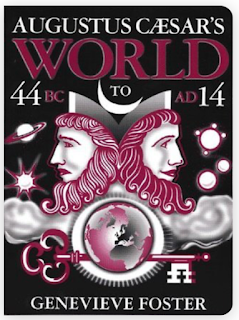Where do I start to explain this meshing of ideas happening in my mind? Well, here are the reads/listens that have encouraged this post (not in order of appearance):
- A Failure of Nerve by Edwin H. Friedman (for the Grow Up challenge with Schole Sisters)
- Ourselves by Charlotte Mason
- The Art of Manliness episodes: "The Real Reason You Procrastinate" and "Social Skills as the Road to Character"
- Character is Destiny by Russell W. Gough
- Humilitas by John Dickson
- Schole Sisters episode: "Empathy is Bad for Your Kids"
Other than Gough's and Dickson's books, the others I have read/listened to recently or am reading/listening to now. Honestly, I've not fleshed out how these all play together, or what the theme is, but "personality" is something I am encountering at every turn. There have been a myriad of definitions of personality and just as many opinions about those definitions.
But honestly, what's personality got to do with it anyway?
I'm terrible at defining my terms but it is important to be sure I am thinking along the same lines as others when trying to work through the ideas they present. This is one thing for which I am very thankful to Mystie Winckler of the Schole Sisters (or you might know her at Simply Convivial). She always demands that we define our terms. Sometimes what one person thinks a word or idea 'means' is quite different than how they are using it.
Personality: a characteristic way of feeling, thinking, and behaving (Britannica); individual differences in patterns of feeling, thinking, and behaving (American Psychological Association); traits and thought patterns (Psych Central)
To this I add my definition of "personality": "the state of being a person, with the common attributes known to be exhibited by people, in general, having character and intelligence." Although I understand that some people would say that is "personhood." Personhood is the legal definition of what is considered a person. Since the government seems to think they can make decisions about everything, I might change my definition to: "the legal status of being a person, with the common attributes to be exhibited by people, in general, having character and intelligence." But that does open a whole 'nother can of worms, does it not?
Character: the combination of mental characteristics and behavior that distinguishes a person or group; distinguishing nature of something; moral strength (American Heritage Dictionary); the aggregate of features and traits that form the individual nature of some person or thing (Dictionary.com); the good qualities of a person that usually include moral or emotional strength, honesty, and fairness (Britannica)
It would seem that 'personality' and 'character' are almost the same thing.
Nerve: courage that allows you to do something dangerous, difficult, or frightening; the rude attitude of someone who says or does things that make other people angry or upset (Britannica); the power of endurance or control (Merriam-Webster)
Intelligence: the ability to learn or understand or to deal with new or trying situations (Merriam-Webster)
Those are the ones that come to mind right away with my trying to wrestle with the above-mentioned reads/listens.
As I think about personality, character, nerve, and intelligence, different theories of how people learn and behave come to mind. Multiple Intelligence theory (Gardner) and one I've found more recently called Big Five Personality traits (Goleman) remind me of my college days' learning. I am sure there was much I let pass me by but tailoring the teaching and material to the students was something that was very pushed. It is very interesting however that the ideas and agenda pushed were not tailored to the students. (Oh, that's another can of worms.)
But honestly, what's personality got to do with it anyway?
If we know how a person is, their preferred syle of learning, their preferred mode of communication, their this-or-that, and tailor our way of doing things to suit them, how does that benefit them? Or us? And, what about our personality? What if their way is contrary to our way? Should we simply put our foot down and say, "hey, I don't like that so you need to do it differently"? Do we put our 'differences' aside and work through it? Should they have to cater to our way of doing things?
We all have preferences and some things will bother us more than others. But at what point is it okay to either let our preferences have the right-of-way (or the only way) or someone else's to dictate what we do?
This is the meshing of ideas from all of those readings/listenings: we all need to realize that we are people who are all in this together. In whatever situation we find ourselves in, we have to work together. There is no point when one person's 'personality' should take center stage to dictate to everyone else how things are to be done, because it will not be necessarily the best for everyone, or the situation.
I really want to think more about the idea of 'coddling' (aka: negative empathy) based on those preferences and its effect on relationships but I think that'll come as I read more of Friedman's book. Also, none of the links I put in earlier have stuck so if you just do some googling you'll easily find what I've referenced here in terms of reads and listens.





